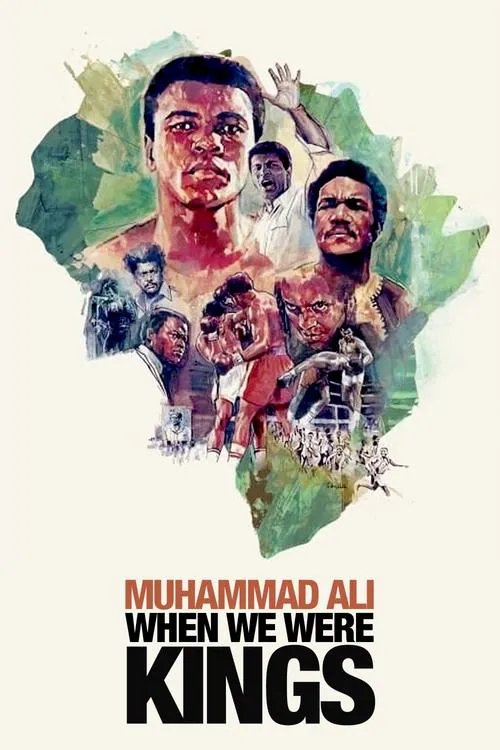When We Were Kings

Plot
It was 1974 and the world of professional boxing was abuzz with the prospect of a legendary showdown between two heavyweight giants: Muhammad Ali and George Foreman. Ali, a three-time heavyweight champion, was at the peak of his career and widely regarded as one of the greatest boxers of all time, with a record of 31-0. Foreman, on the other hand, was the reigning champion, boasting a record of 40-0 with 37 knockouts. The stage was set for an epic battle, not only of fists but also of charisma, confidence, and determination. Promoter Don King, a savvy and ambitious entrepreneur, saw the potential of this matchup as a once-in-a-lifetime opportunity to make a name for himself in the world of boxing. He knew that securing the fight would not only boost his reputation but also pave the way for a lucrative payday. King's approach was direct and calculated; he would offer both fighters a staggering sum of five million dollars each to participate in the bout. If they accepted, King would then be responsible for finding a sponsor to cover the costs of the event. The idea gained traction when King discovered an unlikely investor willing to back his ambitious plans. Mobutu Sese Seko, the ruthless and authoritarian dictator of Zaire, saw the potential for this high-profile fight to bolster his own reputation and solidify his grip on power. With a seemingly endless supply of funds at his disposal, King was able to secure the financial backing required to stage the event. As the stakes escalated, King announced the "Rumble in the Jungle," a lavish spectacle that would bring the greatest fighters of the world together for the battle of a lifetime. But King's ambitions didn't stop at the boxing ring; he aimed to create a veritable music festival featuring some of America's most iconic black performers. The likes of James Brown, B.B. King, and other top talent would be on hand to entertain the massive crowd and cement the event's status as a cultural phenomenon. For Ali, the prospect of fighting the powerful and relentless Foreman was both a challenge and a chance to redeem himself. His detractors had written him off as past his prime, and some had begun to speculate that Foreman, at the tender age of 25, was the new dominant force in heavyweight boxing. The stakes were high, but Ali remained confident in his abilities, convinced that he could outmaneuver and outlast the champion. Foreman, with his imposing physique and formidable punching power, had a reputation for being nearly unbeatable in the ring. His crushing blows had sent many opponents into despair, leaving them on the canvas, unable to comprehend what had hit them. Foreman saw Ali as an adversary to be defeated, a relic of a bygone era who would fall to the unyielding pressure of his relentless attacks. As the two fighters arrived in Zaire, they were met with fanfare and anticipation. The stage was set for an unforgettable encounter, one that would go down in history as one of the greatest fights of all time. But little did they know that in the scorching heat of the African jungle, the course of their lives, and the world of boxing, would forever be altered. Directed by Leon Gast, "When We Were Kings" captures the essence of this unforgettable confrontation, offering a rare glimpse into the lives of two boxing legends on the cusp of immortality. Shot over several weeks in September 1974, the documentary follows the two fighters through their intense training regimens, their personal struggles and insecurities, and their final preparations for the "Rumble in the Jungle." The film also explores the larger-than-life personalities of the men and women who surrounded them, from Don King to James Brown, all of whom played their part in the making of this epic event.
Reviews
Recommendations




